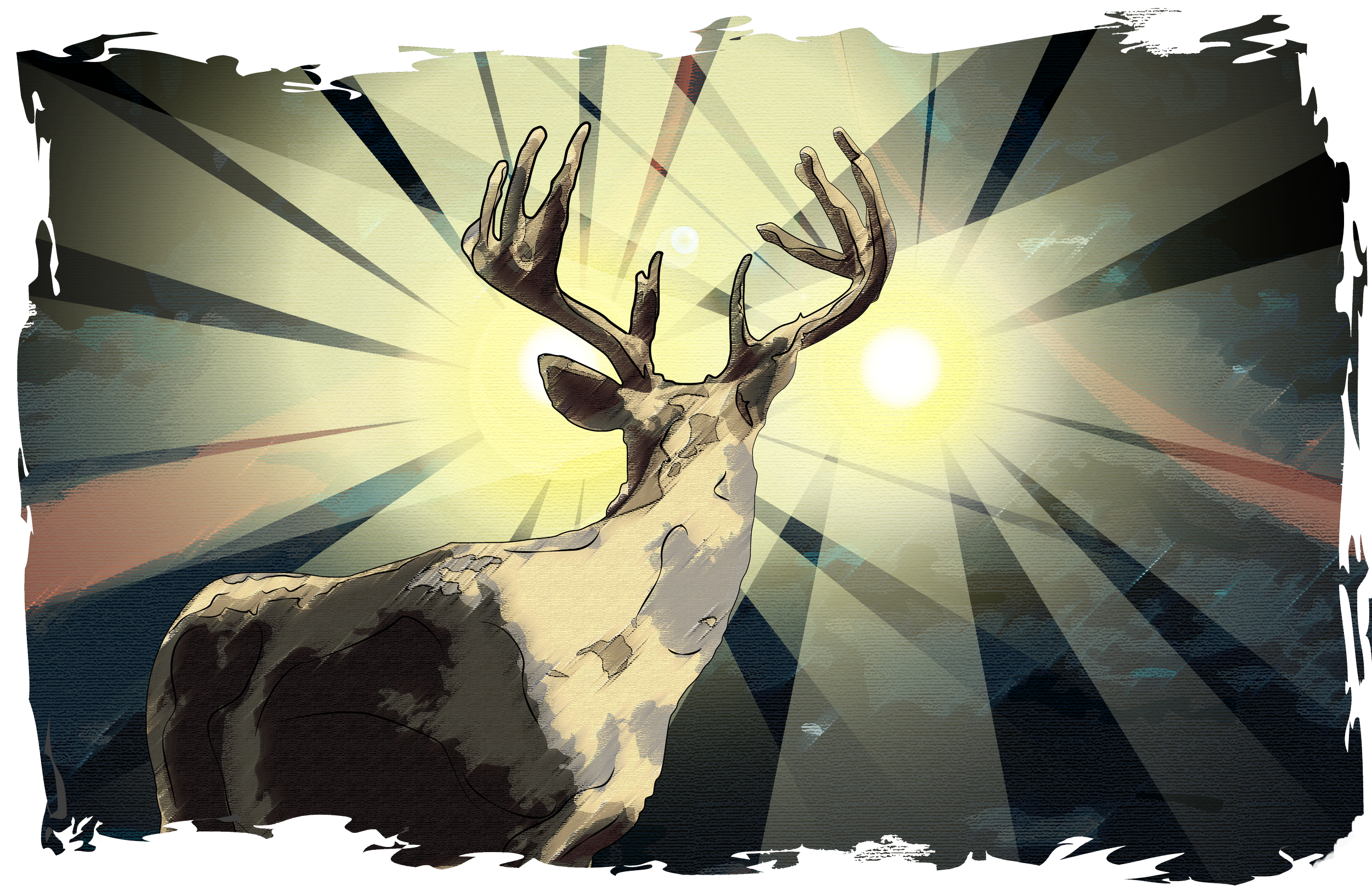Teufelsberg
The war is over and the gas will return soon. When the gas returns I will kill myself. I will lay my head in the oven and breathe deeply. Until then I breathe dust, the dead skin of the city, still traversing the air in the wake of explosions. Particles dancing on the breeze. How dare they dance.
Hand-over-hand, we pass the rubble and the time. Large stones, clumps of brickwork so heavy my hips sting while I swing them up from the ground, into the waiting hands of a neighbour. Fine silt, mortar, and bone, reduced to crumbs, remnants from some terrible feast. It all goes on the heap. Bodies and buildings intermingled. All reduced to dirt.
Some speak, some sing. Most work silently, our limbs moving steadily and without need for thought. The strain of the labor numbs our minds with aching peace. Evening approaches with a chill and the rumbling of American engines, their soldiers perched high on sleek black seats, tossing candy bars to the children. The remaining children. Fingernails cracked and dirty, they tear into the packaging like animals, their little eyes lit up again for just a moment. Then it's back to the mounds, back to the rubble, small hands filled with all the death they can carry.
Sleep comes slowly on a sheet spread over bare mattress springs. Their points wind their way up through my back, a corkscrewing bed of nails. I cover myself with coats, knitted shawls and woolen skirts, anything to compensate for the hole in the wall, which gapes as though yawning into the blackest sky. There are so many stars now, in the absence of streetlights and bomb fire. And what should be beautiful doesn't seem right. There are times I imagine stars as little fires in the distance, another wave of horror poised to crash ashore. Everything smells of dust.
*
I am coaxed back from the precipice of sleep, balanced upon the needle points of the mattress springs, when I first hear the infant's cry. Sharp and furious, screeching across the vast plains of unconsciousness, wrenching me back into the waking cold. My first instinct is to ignore it. To shift my weight as carefully as I can upon my painful bed and chase down my rest. I might catch it yet. But my stomach drops. I tell myself that all babies cry the same. It is not until we are older that our voices become distinct. It is another child, another place. No concern of mine.
Still it persists. So loud and mournful, hungry and primal, shaking the stars in their dark heavens. But it cannot be the neighbour's child. They're gone, long dead, their apartment too. That side of the building lies in rubble just beyond the wall's gaping maw, the bricks framing it like rotten teeth. I imagine the child must be dead too. Little chance it could have survived alone.
Perhaps it is the wind howling through the gap, my own tired mind seeking to make sense of the sound. Perhaps I am still shallowly sleeping, with dreams warping details of the room around me. I wrap myself tighter in my slipshod bedding, curling down into my rat nest of rags, hiding from the sound like a child from shadows on the bedroom wall. The sound only grows louder, even as I bear down hard against my ears with shaking hands, willing it to quiet.
The child was always crying. Little lungs expelling noise into the air, especially in moments that demanded quiet. I never learned what became of the father. I barely knew him – this I have reiterated many times when asked. I might have passed him in the Innenhof when hanging laundry, perhaps nodded my head in response to a greeting, but never more than that. I barely noticed when he disappeared. Yet, I suppose, at some point I must have registered that the woman and child were alone.
It was not uncommon, at that point, for women to be on their own. The men were either dead or conscripted. And the baby screamed night and day. Through the wall – the wall that is now dust – I could hear it. Could hear its mother coo desperately to soothe the cries, to disappear into the din of the building and all its activity.
*
It's so cold and the morning still so far. I can't seem to work heat back into my bones. The crying remains as shrill as ever. It shudders the very room. Lying in my bed, my eyes wide and drinking in the dim light, I see remnants of the wall shake apart from the force of the infant's wailing.
She begged me, I believe, to care for the child. Not in words. Words were dangerous. But as she was dragged from her lodgings, I had made the mistake of standing at the door to find the source of the disruption, and she pleaded to me with her eyes. Of course I knew what she was. She and her husband. If I had not known for certain before, I did after his disappearance. After she and I silently hung our washing, side by side, the yellow star pinned to her bright yellow cardigan.
Dawn crests the horizon just beyond the absent wall. In the early blue light, I can see the mound. The dust-grey color of it, the work yet to be done. The rubble cannot be moved beyond the border. So it accumulates, grows, an awful lurching thing. A tumor of concrete and glass, glittering in the first rays of the sun. Muffled beneath the wreckage, I hear the baby cry.
I could never find it. Wherever its mother had hidden it, I never came close. It would cry, night and day, and I would search the empty apartment. The closet, the cupboards, the bundles of dirty clothes. Nothing. As time wore on, and the world collapsed outside our walls, I grew more desperate. I pulled at the floorboards with my bare hands, my nails prying away from the soft flesh of my fingers. With bloodied hands I rummaged. The baby cried and cried and cried, and I drove myself half-mad seeking it. And then the bomb came and blew the apartment away. And the crying ceased.
I lie in bed and watch the light. My back, neck, and arms all ache from the work, from the corkscrew mattress. The baby cries, full-throated, a cockerel's song for the rising dawn. I lay like this for weeks. Too afraid to move from my bed, to see what has become of the world beyond the remaining walls. If any world still existed. Lying in that guilty quiet. Watching as the sky through the hole in the wall shifted from perfect dark to bright yellow sunlight.
The baby cries and so do I, because now in the growing light I finally know where it is. Pebbles tumble from the heap outside, the sound of the child knocking them from their perches. I don't even bother to wrap my coat about me before thundering down the stairs and into the street. The world is still sleeping. Only the child and I are awake. The cries ring out, guiding me, and I pull at heavy cinder blocks and splintered wood, working my way towards the sound. I fling it all behind me, all of it crashing against the cobblestones, and worm my way inside the mound. The closer I feel I am to the child, the more distant its voice becomes. I shovel debris with my hands, faster and faster, frantically burrowing my way into the heap.
Light no longer penetrates, and in the perfect dark I am aware of only the child's voice. I feel caught on a wire, reeled towards it, my arms and legs moving mountains of wreckage. None of it matters, it's all so weightless now. I can't see myself in the blackness of the burrow, can't tell where the buildings end and I begin. And all around me, the crying child echoes with a sob that gives way to laughter. The remains of a city on fire bear down on me, and it feels as though I am cradled. As though I am cradling the child and both of us are, at last, safe within the amniotic calm of the ruins.







